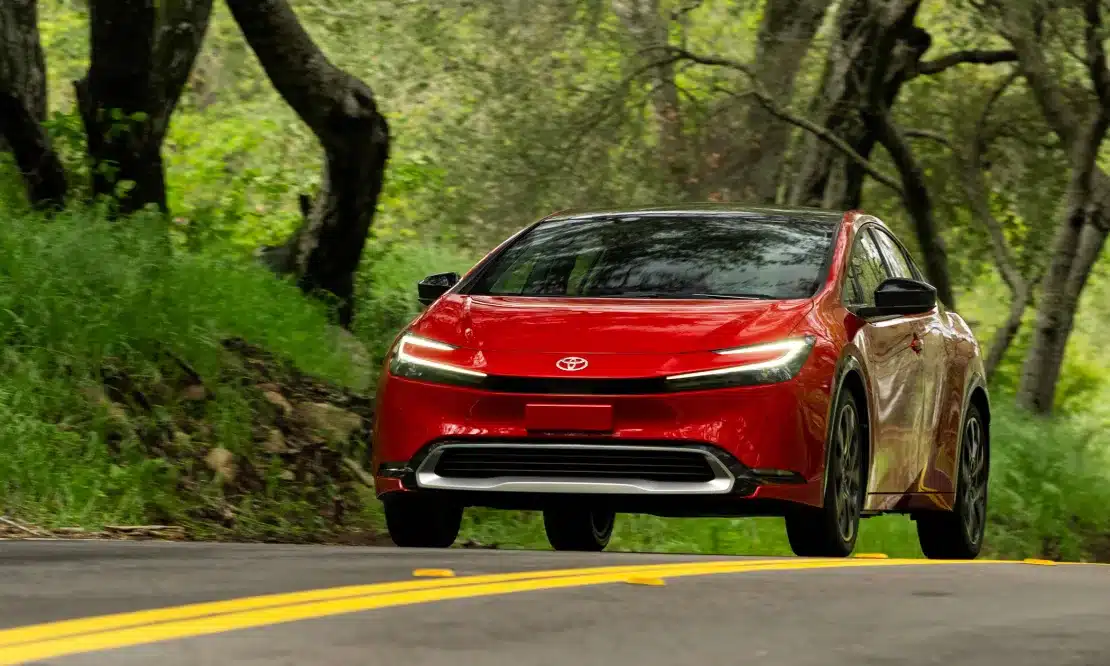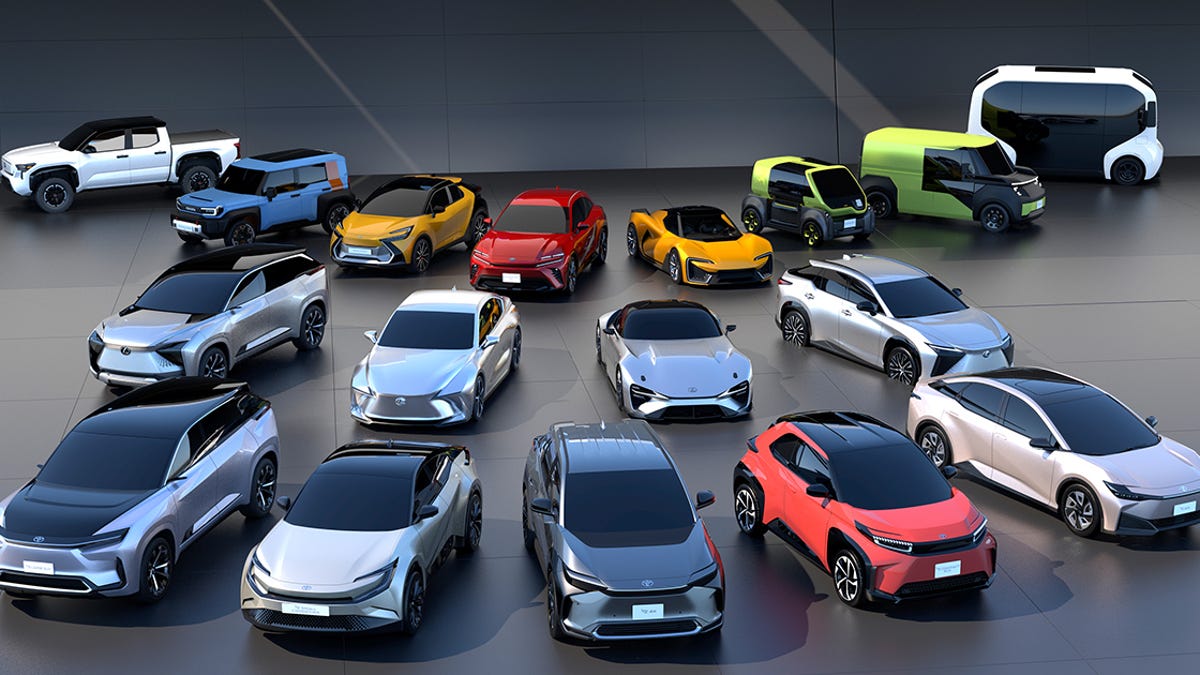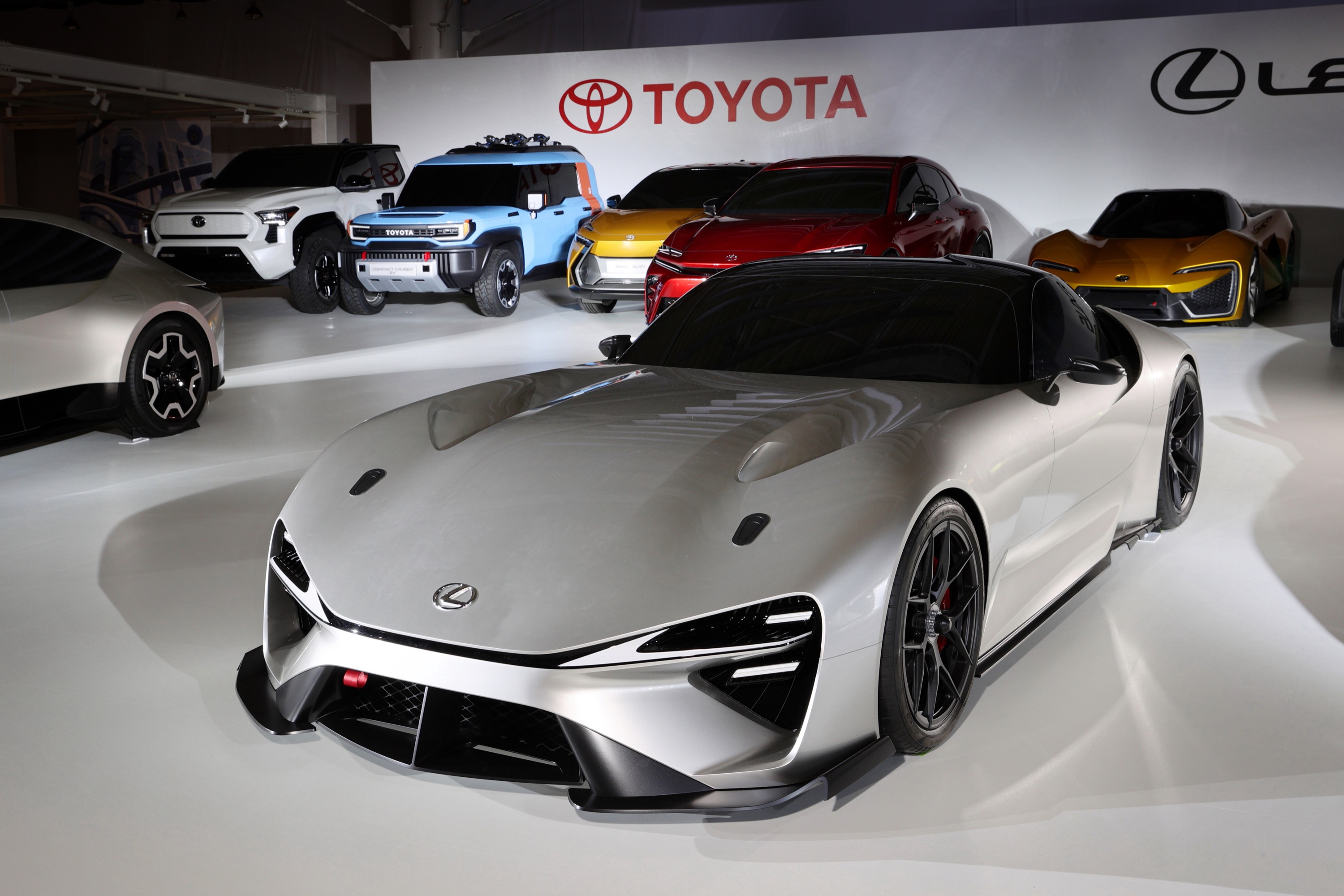Just over a year ago, Toyota appeared to admit that it had failed to deliver on electric automobiles. Its CEO, Akio Toyoda, resigned, describing himself as “an old-fashioned” guy unqualified to lead the world’s largest automaker through the electric revolution.
However, since then, the Japanese corporation has done little to embrace a fully electric future, instead relying heavily on its massively successful hybrid vehicles, which often generate more planet-heating pollution than electric vehicles.
Toyota Is Stepping Up Its Hybrid Production As EV Sales Slow. But What Does This Signify For The Planet?
According to auto experts, the company’s hesitancy about EVs was not a mistake but rather a planned approach to offering consumers what they want. While EV sales are increasing, issues such as price, battery range, and a scarcity of charging stations are slowing the increase in demand.
Toyota’s decision to prioritize hybrids has paid off handsomely: the business is smashing its competitors, including all-electric Tesla. It sold 11.2 million vehicles worldwide last year, more than any other carmaker. A third were hybrids, while less than 1% were EVs.
Research by climate think tank InfluenceMap and a Toyota memo obtained by CNN demonstrates how hard the firm has lobbied governments worldwide to keep hybrids on the road for decades. Toyota vehemently opposes decisions in some of its most important markets, particularly the United States, that place EVs at the core of the clean-energy transportation shift.
Toyota told CNN that it shares “the objective of reducing carbon as much as possible, as soon as possible.” However, the corporation has been very critical of President Joe Biden’s administration’s EV policy, particularly its proposed rule that would compel up to two-thirds of new car sales to be EVs by the start of the next decade.
Some analysts believe Toyota’s campaigning is dragging up the EV market, and Toyota’s intentions will have far-reaching consequences for global warming. Road transportation contributes around 25% of worldwide carbon pollution. As the industry leader, Toyota’s competitors will contemplate following suit.
According to Daniel Sperling, founding director of the Institute of Transportation Studies at the University of California, if Toyota adopted EVs sooner, it would encourage others to follow suit.
He stated, “It would put a lot more pressure on Ford or GM to move faster. “It would also pressure the EPA to move faster.”
As other automakers begin to reconsider their own EV expenditures, experts debate what role EVs and hybrids will play in the future. Those more concerned about the climate problem are asking a larger question: what does this all mean for the planet?
Which cars are the most polluting?
To determine how much global warming pollution an automobile emits, its entire life cycle must be considered, not just what comes out of the tailpipe but also what it took to construct and transport the car to the dealership.
Gas-powered automobiles, hybrids, and EVs all create nearly the same amount of pollutants in manufacturing, except for the battery.
Fully electric vehicles have enormous batteries produced from resources that require extensive mining. According to one study, on average, they emit 40% more pollution than hybrid and gas-powered vehicles.
Toyota Is Stepping Up Its Hybrid Production As EV Sales Slow. But What Does This Signify For The Planet?
However, the picture varies over their entire life cycle. Gas-powered vehicles are the cleanest to manufacture but the dirtiest during their lifespan due to significant exhaust pollution.
EVs may be the most carbon-intensive to build, but they generate the least carbon emissions over their lifetime: 40% less than gas-powered vehicles. Another study found that after around two years, the pollution savings from driving an EV offset the pollution caused during production.
Hybrids are in the middle; on average, they emit 17% more carbon pollution than EVs. However, not all hybrids are made equal.
A pure hybrid uses gasoline and stores excess energy from the brakes and, occasionally, the gas engine, making it more fuel-efficient than a standard car.
Plug-in hybrids provide the reliability and range of gas cars while emitting less pollution and using less fuel. They are also more affordable than electric vehicles. Plug-in hybrids employ EV-like batteries and can normally travel 20 to 40 miles on electricity, but they also include fuel tanks and can convert to pure hybrids when the battery is low.
Some plug-in hybrids compete with EVs in terms of total life-cycle pollutants. According to the American Council for an Energy-Efficient Economy’s 2024 rankings, Toyota’s plug-in hybrid, the Prius Prime SE, is the least polluting car on American roads, including EVs. This is due to a mix of variables, including the Prime’s weight and design, which increase fuel efficiency.
According to InfluenceMap, a climate think tank that analyzed the company’s engagement activities, Toyota has been lobbying governments for at least three years to stall the transition to all-electric vehicles. The report states that Toyota has done so in several countries, including the United States, Canada, the United Kingdom, and Australia.
In a 2022 analysis, InfluenceMap placed Toyota as the tenth most influential firm in the world opposing climate policy action out of over 400 in its database.
Toyota, other automakers, and an auto trade association strongly opposed the EPA’s proposed tailpipe rule. Two individuals familiar with the plan told CNN in February that the Biden administration is considering delaying the tough standards slated to begin in 2027 until after 2030. That would eventually cut as much pollution as the original proposal, but more gradually, resulting in more pollution in the short run.
Toyota would benefit greatly from such a delay, given that, according to Cox Automotive and Kelley Blue Book, it supplied only 1.3% of EVs in the United States last year but more than 14% of all automobiles under the Toyota and Lexus brands.
Toyota Is Stepping Up Its Hybrid Production As EV Sales Slow. But What Does This Signify For The Planet?
Toyota has publicly opposed EV objectives in numerous nations. However, a letter sent to car dealers all over the country in the fall of 2023 that CNN was able to obtain shows how determined the company is to weaken the US government’s electric vehicle laws.
In the document, Toyota Motor North America group vice president of government affairs Stephen Ciccone blasted the EPA’s EV proposal as “draconian,” stating it was bad for the environment, the country, the consumer, And the auto industry.
“Never before in the 120-year history of the US auto industry has an administration used its power more forcibly to dictate the future of the auto industry,” Ciccone said in the email, claiming the EPA’s mandate had generated an “existential crisis” in the industry.
“For more than two years, Toyota and our dealer partners have stood alone in the fight against unrealistic BEV mandates,” Ciccone stated, referring to battery electric vehicles. “We have received a lot of criticism from environmentalists, the media, and some politicians. But we haven’t—and will not—back down.”
Toyota verified the memo’s veracity but did not provide any specific comments. Some of Toyota’s shareholders are speaking out against the company’s bad climate campaigning, like the Danish pension fund AkademikerPension, which stated in a letter that Toyota was becoming “a global laggard status on climate action within the auto sector.”
“Toyota is a conservative, cautious company,” UC’s Sperling explained. “Their incrementalist approach is to support plug-in hybrids. That is their next step, and it is not disruptive to the market or the consumer. They move slowly, but they do good engineering. You look at their behavior now; in that environment, it’s not shocking.”
SOURCE – (CNN)











